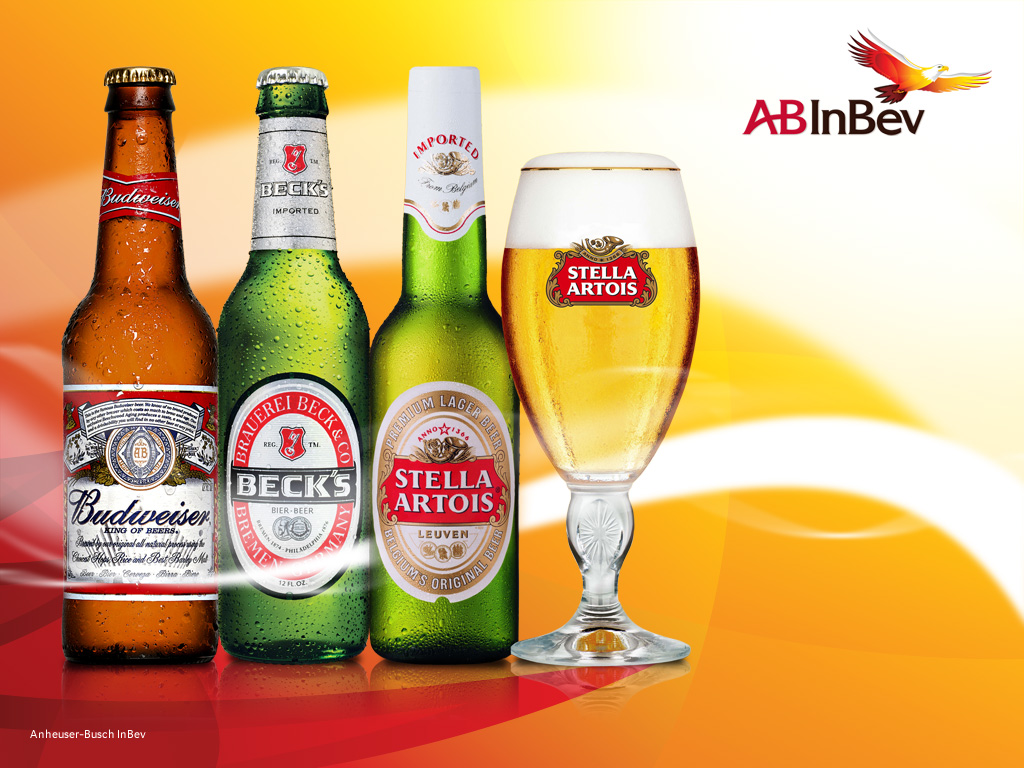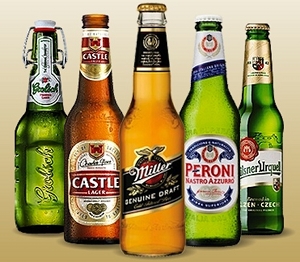 This morning the two biggest brewers in world agreed to become one company…We’d like to say we’re surprised, but we’re not.
This morning the two biggest brewers in world agreed to become one company…We’d like to say we’re surprised, but we’re not.
London-based SABMller had dismissed a couple of earlier offers, from the brewing monolith, AB InBev, but this thing always felt like a negotiation not a rejection. And evidently the numbers finally felt right on the Brussel-based company’s fifth run and SABMiller said yes…but they were always going to.
If this long-speculated move sees final approval, it would create 245 billion brewing empire that controls almost a third of the worlds beer supply and put mega-brands like Budweiser, Coors, Miller, and Peroni (among many others) under one roof.
It would also change the global beer landscape profoundly.
 The Why
The Why
It’s pretty obvious isn’t it? It’s the old “if can’t beat them …join them” strategy. There’s always been strength in numbers (and the numbers involved in this deal will no doubt be enormous). And why not devour your competition and make yourself stronger at the same time? The fact that both companies have been losing their once indomitable market share to craft beer for years now is a call for action, if ever there was one.
This alliance would benefit both companies and would create a beer company with power and reach like we’ve never seen…
The Washington Post explains that “the merger would also give both giants more resources in tackling the growing beer markets outside the U.S., including A-B InBev’s push in Latin America and SABMiller’s hold on Africa.”
 The Why Not
The Why Not
Well price fixing comes immediately to mind. We’ve seen it on Wall Street, we’ve seen it in the airline industry and at the telecoms. Who in their right mind, doesn’t expect to see this kind of thing, if this proposed merger actually happens?
And we have to ask, do you really want to see one big beer company controlling close to 70% of America’s beer market? If you don’t think that a corporation with that kind of combined money, with that kind of power, won’t use its enormous influence to control retail distribution (both on premise and off) – you’re the one drinking too much.
Good News and Bad News
The good news is that a deal of this scope and international scale has huge anti-trust hurdles to overcome. We unfortunately also understand that big business knows how to court political favor – so there’s that.
And add an inevitable cabal of high-priced lawyers in to the mix…
From a legal point of view, we can’t imagine what kind of argument one might legitimately make. How can one company controlling 70% of America’s beer market, let alone one-third of the world’s, truly be good for the consumer?
But that’s why they make law schools – and that’s why the most powerful companies have their own law divisions to argue for them.
But here’s what their lawyers won’t be arguing…
Those corporate lawyers will do their best to minimize this merger’s impact on small business. The fact that if this deal is allowed to go through, small craft brewers will see their access to equal and fair retail distribution increasingly limited. Nor do we expect to hear much about how this new global entity’s combined resources will give them the power to unfairly low-ball their beer prices – a play to outlast and eventually crush their craft beer competitors.
No, we don’t think we’ll hear much about that.
What We Expect
This is a done deal and will be approved internationally…Yeah, they’ll act like they’re doing their due diligence (in the name of the consumer) but behind the scenes agreements are being made over lavish dinners and pieces being moved into place.
Because in the end, business always comes down to money…
And as Cyndi Lauper once reminded us back in the day, “Money Changes Everything.”
 American Craft Beer The Best Craft Beer, Breweries, Bars, Brewpubs, Beer Stores, And Restaurants Serving Serious Beer.
American Craft Beer The Best Craft Beer, Breweries, Bars, Brewpubs, Beer Stores, And Restaurants Serving Serious Beer.
